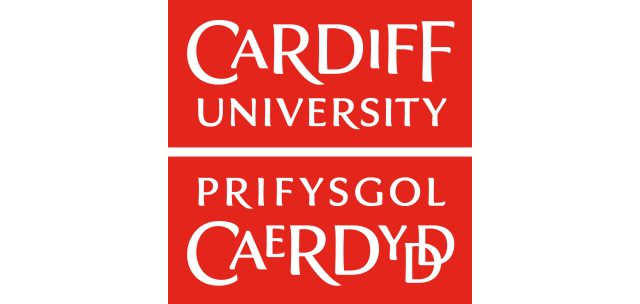土木工程专业
Cardiff, 英国
学士
期间
3 年
语言
英语
步伐
全职
报名截止日期
最早开始日期
学费
GBP 28,200 / per year *

学习形式
在校园
* 海外学费 | 国内学费 第二年、第三年和第四年:9,250 英镑 / 第一年:9,000 英镑
与其他学科的工程专业学生一起进行小组项目可以反映专业工程团队的活力,并帮助您培养重要技能。土木工程师和环境工程师设计、建造和维护影响我们日常生活的空间和场所,重点关注环境问题,例如废物管理、受污染的土地和水处理。
这门经认证的土木工程学士学位课程提供您成为一名随时可上岗的土木和环境工程师所需的知识、技能和实践经验。通过实验室课程、实地考察、个人项目和设计课程,您将巩固从讲座和辅导课中学到的知识,并培养您在勘测和设计方面的实践能力。
您将从一系列真实的、现实世界的工程问题和以行业为中心的场景中进行选择,以个人或与其他学科的学生工程师一起进行工作。小组工作反映了工程团队的关系,并将帮助您培养专业技能,例如团队合作和沟通。我们的开放式创客空间允许您进行设计、创作和协作。
为什么学习这门课程
专业技能
与其他学科的工程专业学生一起进行的小组项目反映了专业工程团队的活力,并将帮助您培养重要的技能。
灵活课程
你可以自由选择自己想要的学习方向,灵活掌握自己的学位。如果你改变了对课程的想法,在大多数情况下,你可以在第一年结束时申请转换。
行业主导的内容
我们的课程内容以工业合作为基础,由领先的学术人员授课,其中许多人都是特许工程师或曾在工业界工作过。
强大的设计元素
我们的课程设计元素丰富,设计工作室、专业实验室、车间和计算机套件中有大量动手实践机会。土木工程专业的学生将有机会参加工业实地考察。
专业认证课程
获得英国土木工程师学会、结构工程师学会、特许公路与运输学会以及公路工程师学会代表工程委员会的认可,以完全满足注册为注册工程师的学术要求并部分满足注册为特许工程师的学术要求。
Loans and Grants
Financial support information for students.
Bursaries
We wish to ensure that financial circumstances are not a barrier to your undergraduate study opportunities.
Scholarships
We wish to recruit the very best students and to help us achieve this, we offer a number of scholarships.
Part-time Undergraduate Funding
Information about funding for part-time students.
Financial Support for Asylum Seekers
Information for asylum seekers about the financial support we offer undergraduates and options for funding from outside the University.
- 工程分析
- 计算1
- 环境流体与地质力学
- 材料与构造
- 设计研究
- 结构体
- 专业工程
- 工程分析
- 计算2
- 水力学与土壤力学
- 专业研究与建设
- 结构分析与设计
- 施工与施工管理
- 项目
- 结构分析
- 水工程
- 岩土工程
- 结构设计研究
- 土木工程设计
- 专业工程学
- 工程中的应用数值方法
- 综合建筑设计
- 可再生能源设计
- 有限元理论与实践
- 设计可行性
- 海岸与河口工程
- 建筑和基础设施信息建模
- 土壤力学
- 结构工程
- 动力学
- 洪水设计
- 钢结构
- 先进结构力学
- 泥沙输送动力学
- 纳米力学基础
What skills will I practise and develop?
The Learning Outcomes for this Programme describe what you will be able to do as a result of your study at Cardiff University. They will help you to understand what is expected of you.
On successful completion of the Programme you will be able to:
Knowledge & Understanding
- Apply a comprehensive knowledge of mathematics, statistics, natural science and engineering principles to the solution of complex problems in architectural engineering. Much of the knowledge will be at the forefront of the particular subject of study and informed by a critical awareness of new developments and the wider context of architectural engineering.
- Formulate and analyse complex problems to reach substantiated conclusions. This will involve evaluating available data using first principles of mathematics, statistics, natural science and engineering principles, and using engineering judgment to work with information that may be uncertain or incomplete, discussing the limitations of the techniques employed.
- Evaluate the environmental and societal impact of solutions to complex architectural engineering problems (to include the entire life-cycle of a product or process) and minimise adverse impacts.
- Discuss the role of quality management systems and continuous improvement in the context of complex architectural engineering problems.
- Apply knowledge of engineering management principles, commercial contexts, project and change management, and relevant legal matters including intellectual property rights.
Intellectual Skills
- Select and apply appropriate computational and analytical techniques, recognising/discussing the limitations of the techniques employed, for the synthesis of architectural engineering problems, and to make judgements on appropriate action.
- Select and evaluate technical literature and other sources of information to address complex problems.
- Design solutions for complex architectural engineering problems that meet a combination of societal, user, business and customer needs as appropriate, with consideration of applicable health & safety, diversity, inclusion, cultural, societal, environmental and commercial matters, codes of practice and industry standards.
- Apply an integrated or systems approach to the solution of complex problems.
Professional Practical Skills
- Select and apply appropriate practical laboratory and workshop skills in architectural engineering, particularly in devising analytical or experimental approaches, to investigate complex problems.
- Select, apply and evaluate appropriate materials, equipment, engineering technologies and processes, recognising their limitations.
- Use a risk management process to identify, evaluate and mitigate risks (the effects of uncertainty) associated with a particular architectural engineering project or activity.
- Adopt a holistic and proportionate approach to the mitigation of security risks in architectural engineering.
Transferable/Key Skills
- Communicate effectively on complex engineering matters with technical and non-technical audiences, evaluating the effectiveness of the methods used.
- Identify and analyse ethical concerns and make reasoned ethical choices informed by professional codes of conduct.
- Adopt an inclusive approach to engineering practice and recognise/articulate the responsibilities, benefits and importance of supporting equality, diversity and inclusion.
- Function effectively as an individual, and as a member or leader of a team.
- Plan and record the reflective evaluation of self-learning and development as the foundation for lifelong learning/CPD.
毕业生职业
- 土木工程师
- 技术分析师
- 设计工程师


